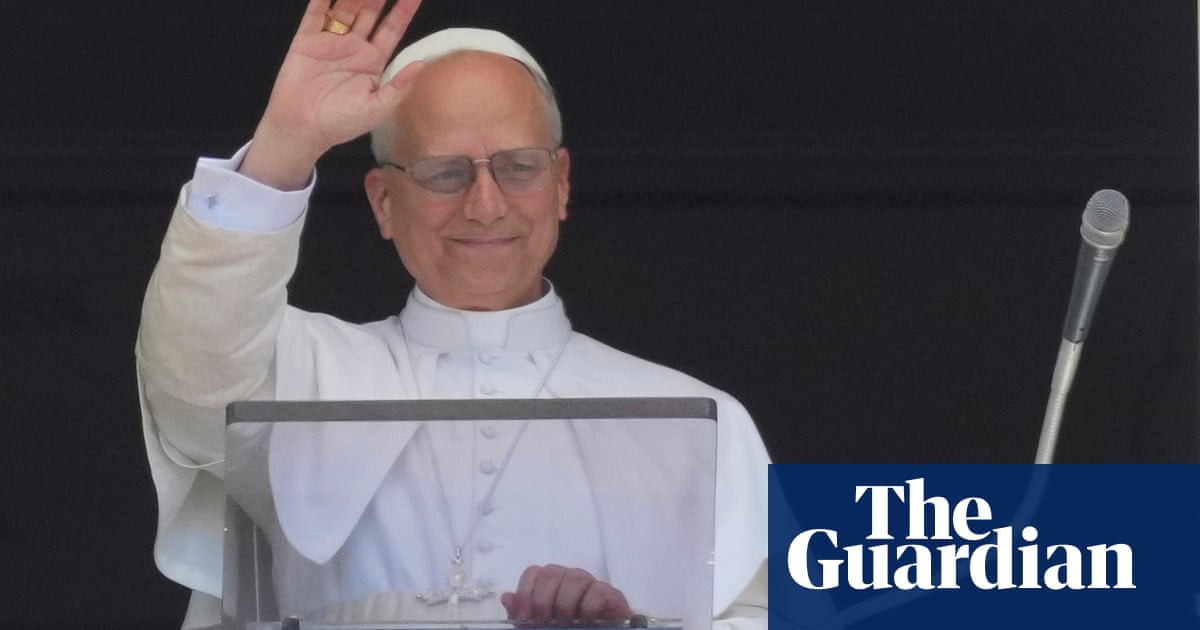Pope Leo XIV’s election as the first US-born leader of the Roman Catholic church elevated him to the rare, legally thorny, position of being an American citizen who now is also a foreign head of state.
Bornin Chicago asRobert Prevostin 1955, the new pope for the past decade has held dual citizenship in the US and Peru, where he spent time as a missionary and bishop.
As pope, Leo serves as leader of both the Holy See, the governing body of the Catholic church, and Vatican City, an independent state – raising the question of whether he can remain a US citizen while leading a foreign government.
Americans working for foreign governments aren’t automatically at risk of forfeiting their US citizenship.
But the US state department says on its website that it may “actively review” the citizenship status of Americans who “serve as a foreign head of state, foreign head of government, or foreign minister”.
“Such cases raise complex questions of international law, including issues related to the level of immunity from US jurisdiction that the person so serving may be afforded,” the policy states.
The state department declined to comment on the pope’s status. A spokesperson said the department doesn’t discuss the citizenship of individuals.
The core issue is whether foreign leaders should hold American citizenship when they also enjoy broad immunity from US laws, said Peter Spiro, a Temple University law professor and an expert on citizenship law. Such immunity clashes with the constitutional principle that no US citizen should be above the law.
However, the US supreme court in a 1980 decision ruled that Americans can’t be stripped of their citizenship unless they intentionally renounce it.
“The state department never assumes that you intend to lose your citizenship unless you specifically say so through the renunciation process,” Spiro said.
He said it would be hard to argue that Leo, by becoming pope, demonstrated an intent to give up being a US citizen.
“I think it’s highly unlikely that the US moves to terminate the pope’s citizenship,” Spiro said.
Peruvian law has no conflict with Pope Leo remaining a citizen, said Jorge Puch, deputy director of registry archives at Peru’s National Registry of Identification and Civil Status.
Leo was granted Peruvian citizenship in August 2015, the month before Pope Francis appointed him bishop of Chiclayo in the South American country’s northern region. To qualify, he had to live in Peru for at least two years and pass a civics test.
“It is the most praiseworthy thing our beloved supreme pontiff could have done: Wanting to have Peruvian nationality without having been Peruvian by birth,” Puch said.
All adult Peruvians, including naturalized citizens, are required to vote in elections through age 69. Voting in Peru’s presidential election next April won’t be mandatory for Leo. He turns 70 in September.
It’s not clear what happened to the citizenship status of Leo’s predecessors once they became pope. That’s not information the Vatican discloses.
Pope Francis renewed his passport in his home country of Argentina in 2014, the year after he became pope. Popes Benedict XVI and John Paul II – natives of Germany and Poland, respectively – never publicly relinquished citizenship in their home countries.
John Paul was the first non-Italian pope in 455 years.
Margaret Susan Thompson, a Syracuse University history professor and expert on AmericanCatholicism, said she doubts Leo would renounce his US citizenship. But she believes the new pope was sending a message when he delivered his first speech in Italian and Spanish without using English.
“I think he wants to stress that he is the pope of the universal Catholic Church,” Thompson said, “and not an American holding that position”.
Other US citizens who have served as leaders of a foreign government include UK prime minister Boris Johnson, who was born in New York to British parents.
Mohamed Abdullahi Mohamed was an American citizen when he was elected president of Somalia in 2017. Valdas Adamkus became a US citizen after his family fled Lithuania to escape Soviet occupation. He returned to win Lithuania’s presidency in 1998, years after the Soviet Union collapsed.
Johnson, Adamkus and Mohamed all renounced their US citizenship.
